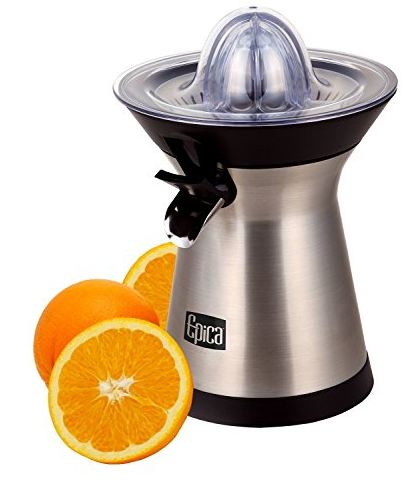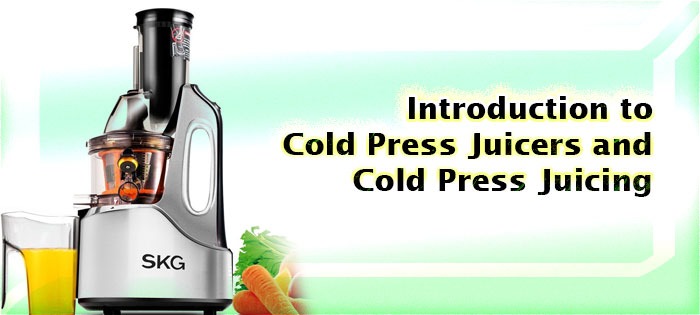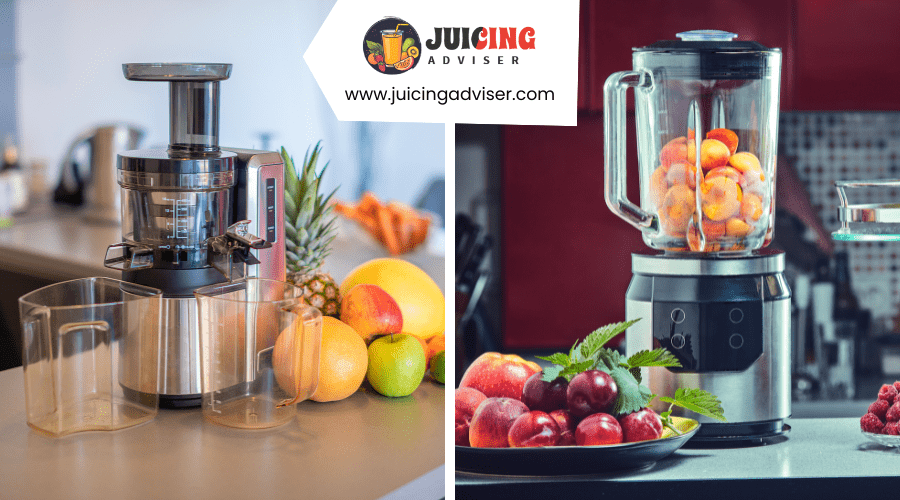Simple Guide to Storing Fresh Juice
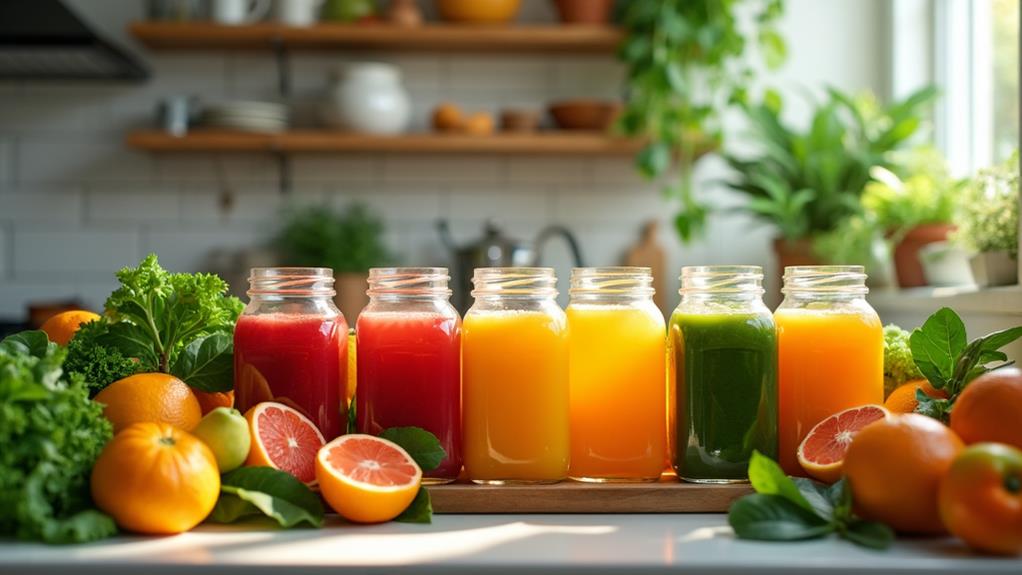
To maintain the freshness and nutritional value of your freshly squeezed juice, follow these key practices. Using airtight glass containers filled to the brim can significantly reduce oxidation. Proper storage ensures the juice retains its health benefits for a longer period. Additionally, the type of juicer you use is crucial in enhancing the juice's shelf life and quality.
Importance of Immediate Storage
Immediate storage is crucial for preserving the nutritional value of fresh juice. When fruits and vegetables are juiced, their nutrient compounds rapidly degrade due to exposure to air, light, and heat—a process known as oxidation. This degradation significantly reduces the juice's vitamins and antioxidants. Storing juice immediately in airtight containers can minimize nutrient loss and help retain its health benefits.
Prompt storage also prevents bacterial growth. Fresh juice is highly susceptible to bacterial contamination if left out too long. By storing it right after preparation, you minimize the risk of contamination, ensuring the juice remains safe to consume.
For optimal nutrient retention, it is best to consume your juice within 48 hours of preparation. Delaying consumption further diminishes its nutritional effectiveness. Airtight containers not only keep the juice fresh but also help preserve essential vitamins and antioxidants. Understanding the importance of immediate storage allows you to enjoy the full benefits of your fresh juice.
Best Storage Practices
To maximize the shelf life and nutritional value of your fresh juice, use airtight glass containers to minimize oxygen exposure, which is crucial for preventing nutrient degradation. Fill these containers as close to the top as possible to reduce air space and oxidation, thereby maintaining the juice's quality.
Store the juice immediately after preparation to preserve its freshness. For optimal nutrient retention, consume the juice within 24-48 hours. Adding a splash of citrus, such as lemon or lime, can enhance Vitamin C levels and antioxidants, further reducing oxidation.
For ideal storage, keep your juice in a cool, dark place like a refrigerator. This environment slows degradation, preserving the juice's freshness and nutritional value. If transporting your juice, use cooler bags with ice packs to maintain a consistent, cold temperature, ensuring the juice remains in peak condition.
Effects of Oxidation
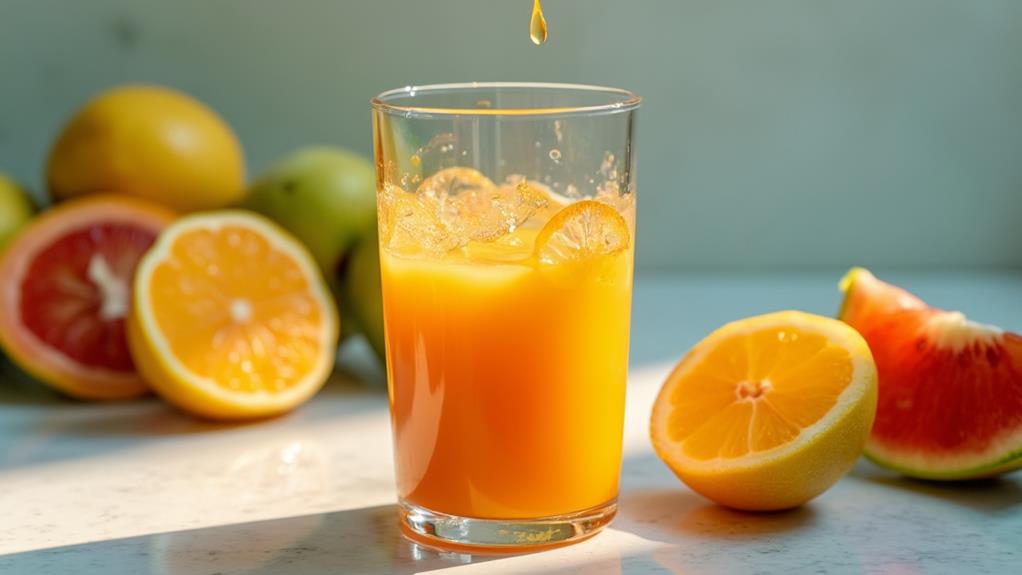
Oxidation significantly impacts the nutritional quality of fresh juice by degrading its vitamins and minerals. When fruits and vegetables are juiced, their cell walls break down, exposing the nutrients to oxygen. This exposure accelerates oxidation, leading to substantial nutrient loss. Within three days, your juice can lose over 80% of its nutritional value. This degradation results in dull color, altered flavor, and reduced quality.
Here is a quick comparison of factors affecting juice quality:
| Factor | Effect on Juice |
|---|---|
| Oxygen Exposure | Nutrient Degradation |
| Extended Storage | Nutrient Loss |
| Heat | Accelerated Oxidation |
| Light | Quality Reduction |
To combat oxidation, store your juice in airtight glass containers filled to the brim to minimize oxygen exposure. This helps preserve freshness and nutrients. For optimal nutritional value, aim to consume your juice within 24-72 hours of preparation.
Choosing the Right Juicer
Choosing the right juicer can significantly impact the quality and nutritional value of your fresh juice. For maximum nutrient retention and minimal oxidation, the type of juicer you select is crucial.
Types of Juicers:
- Masticating Juicers: These juicers, including twin gear and single auger models, grind and chew the produce, resulting in higher nutrient retention and less oxidation.
- Centrifugal Juicers: Models like the Philips Avance Collection work quickly but introduce more air into the juice, leading to faster oxidation and nutrient loss.
- Cold-Pressed Juicers: Options like the Nama Cold Press Juicer Vitality 5800 use a hydraulic press to extract juice, preserving more vitamins and minerals and offering superior juice quality.
Impact on Juice:
- Consistency: Slow juicers produce thicker, more nutrient-dense juice.
- Shelf Life: Juice from slow and cold-pressed juicers typically lasts longer in storage.
Selecting the appropriate juicer not only affects the nutritional content but also the texture and longevity of your juice.
Tips for Reducing Nutrient Loss
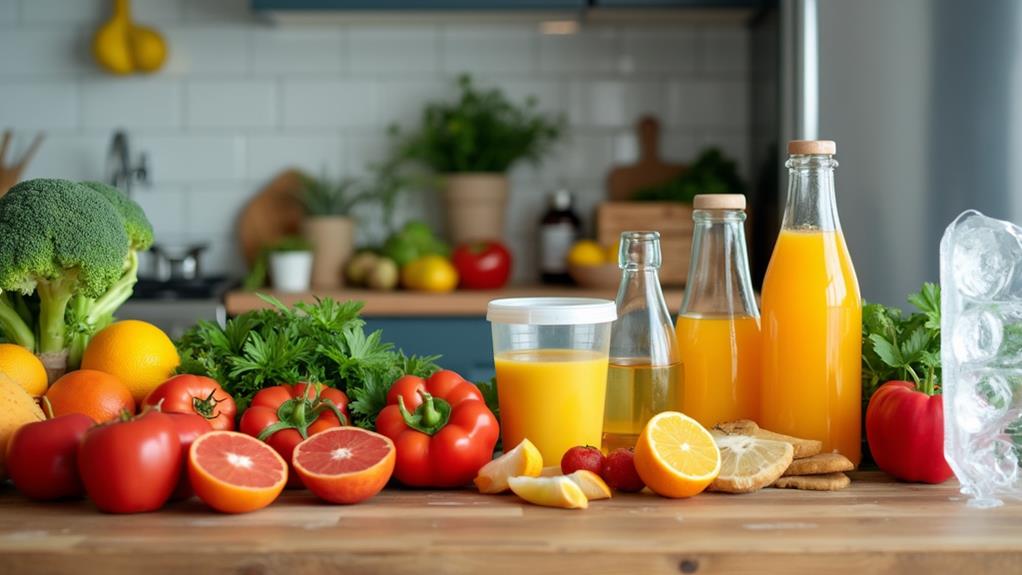
To reduce nutrient loss and keep your fresh juice as healthy as possible, follow these steps:
- Use Airtight Glass Containers: Store your juice in airtight glass containers to minimize air exposure and slow nutrient degradation. Fill the containers close to the top to limit air inside, reducing oxidation.
- Add Citrus: A splash of lemon or lime boosts Vitamin C levels and helps reduce oxidation, similar to how lemon juice prevents apples from browning.
- Refrigerate Immediately: Store your juice promptly in a refrigerator to minimize exposure to air, heat, and light, which can degrade nutrients. Keeping your juices cold is essential for preserving their nutritional value.
- Consume Within 48 Hours: Nutrient loss occurs rapidly after juicing, so aim to drink your juice within 48 hours for maximum health benefits.
Following these tips will help you effectively store your fresh juice while maintaining its nutritional value.

